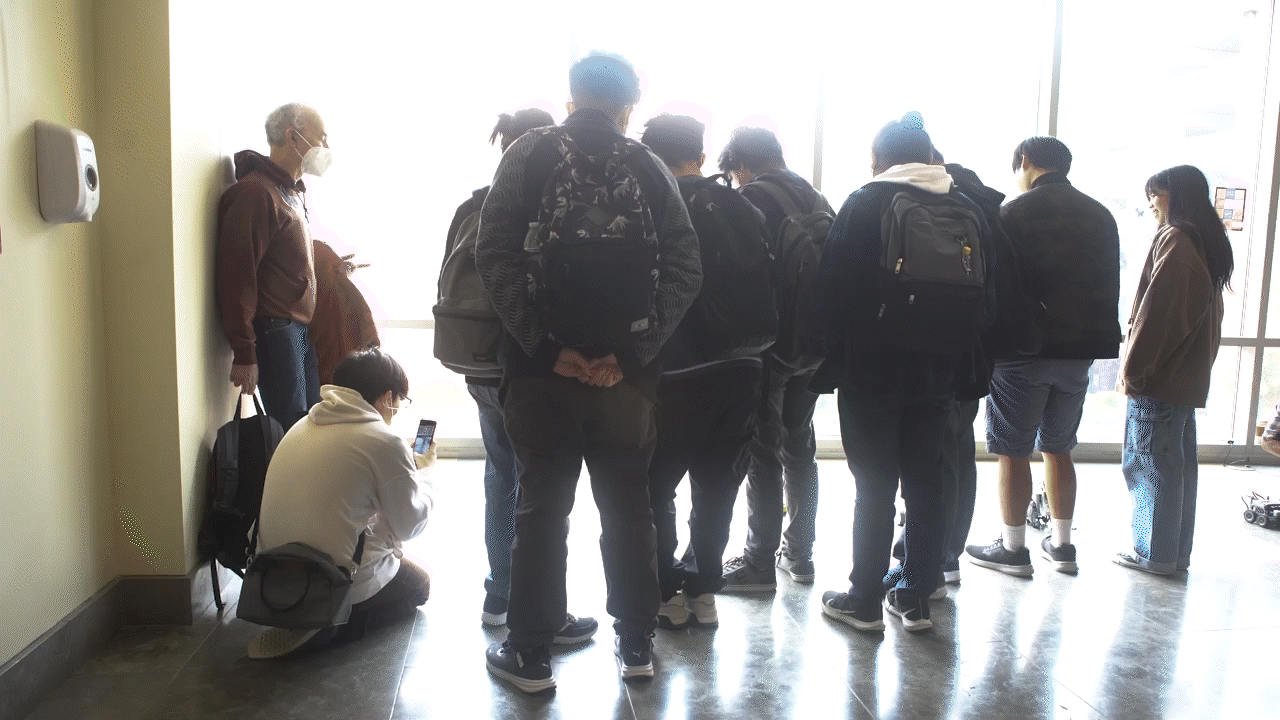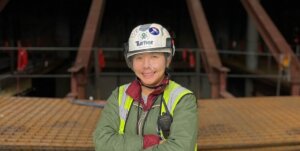
USC researchers present 15 papers at the 2022 IEEE/RSJ International Conference on Intelligent Robots and Systems (IROS).
From robots that learn to gently handle objects by watching demonstrations, to more efficient search-and-rescue robots that “see through” darkness and dust, USC researchers have co-authored 15 papers at the 2022 IEEE/RSJ International Conference on Intelligent Robots and Systems (IROS), which takes place at the Kyoto International Conference Center, Japan, Oct. 23-27.
As one of the largest and most impactful research conferences in the world, IROS showcases leading-edge research in intelligent robots and smart machines. The conference focuses on future directions in robotics, and the latest approaches, designs and outcomes. It also provides an opportunity for researchers to network with the world’s leading roboticists. The theme of IROS 2022 is “Embodied AI for a Symbiotic Society.”
“IROS is one of the two largest annual robotics conferences in the world,” said Gaurav Sukhatme, the Fletcher Jones Foundation Endowed Chair in Computer Science and Executive Vice Dean of the USC Viterbi School of Engineering and an Amazon Scholar. “Roboticists at USC pursue a wide variety of problems in intelligent robots and systems and this diversity is reflected in USC’s strong representation at the conference.”
In addition, Maja Matarić, the Chan Soon-Shiong Chair and Distinguished Professor of computer science, neuroscience, and pediatrics, was honored as one of the 35 Women in Robotics Engineering and Science (WiRES) at the event’s Anniversary Forum, where she gave a keynote on “assistive and social robots.”
Boldened name = USC student/faculty
Accepted papers
Learning to Act with Affordance-Aware Multimodal Neural SLAM
By Zhiwei Jia, Kaixiang Lin, Yizhou Zhao, Qiaozi Gao, Govind Thattai, Gaurav Sukhatme
Safety Compliant Control for Robotic Manipulator with Task and Input Constraints
By Muhammad Ali Murtaza, Sergio Aguilera, Muhammad Waqas, Seth Hutchinson
Yun Chang, Kamak Ebadi, Christopher E. Denniston, Muhammad Fadhil Ginting, Antoni Rosinol, Andrzej Reinke, Matteo Palieri, Jingnan Shi, Arghya Chatterjee, Benjamin Morrell, Ali-akbar Agha-mohammadi, Luca Carlone
Loop Closure Prioritization for Efficient and Scalable Multi-Robot SLAM
Christopher E. Denniston, Yun Chang, Andrzej Reinke, Kamak Ebadi, Gaurav Sukhatme, Luca Carlone, Benjamin Morrell
Inferring Articulated Rigid Body Dynamics from RGBD Video
Eric Heiden, Ziang Liu, Vibhav Vineet, Erwin Coumans, Gaurav Sukhatme
Informative Path Planning to Estimate Quantiles for Environmental Analysis
Isabel M. Rayas Fernández, Christopher E. Denniston, David A. Caron, Gaurav Sukhatme
Balancing Control and Pose Optimization for Wheel-Legged Robots Navigating High Obstacles
Junheng Li, Junchao Ma, Quan Nguyen
Multi-Goal Multi-Agent Pickup and Delivery
Qinghong, Xu, Jiaoyang Li, Sven Koenig, Hang Ma
Asynchronous Real-Time Decentralized Multi-Robot Trajectory Planning
Baskın Senbaslar, Gaurav Sukhatme
Efficient Multi-Task Learning Via Iterated Single-Task Transfer
K.R. Zentner, Ujjwal Puri, Yulun Zhang, Ryan Julian, Gaurav Sukhatme
Robust High-Speed Running for Quadruped Robots Via Deep Reinforcement Learning
Guillaume Bellegarda, Yiyu Chen, Zhuochen Liu, Quan Nguyen
Kaustav Chakraborty, Haodi Hu, Matthew Kvalheim, Feifei Qian
Learning Deformable Object Manipulation from Expert Demonstrations
Gautam Salhotra, I-Chun Arthur Liu, Marcus Dominguez-Kuhne, Gaurav Sukhatme
Contact-Timing and Trajectory Optimization for 3D Jumping on Quadruped Robots
Van Chuong Nguyen, Quan Nguyen
ACHORD: Communication-Aware Multi-Robot Coordination with Intermittent Connectivity
Maira Saboia Da Silva, Lillian Clark, Vivek Thangavelu, Jeffrey Edlund, Kyohei Otsu, Gustavo J. Correa, Vivek shankar Varadharajan, Angel Santamaria-Navarro, Amanda Bouman, Sung-Kyun Kim, Tiago Vaquero, Giovanni Beltrame, Nils Napp, Gustavo Pessin, Ali-akbar Agha-mohammadi
Published on October 26th, 2022
Last updated on October 26th, 2022











